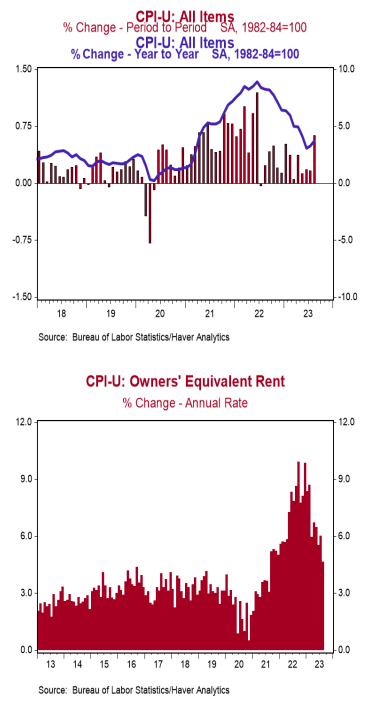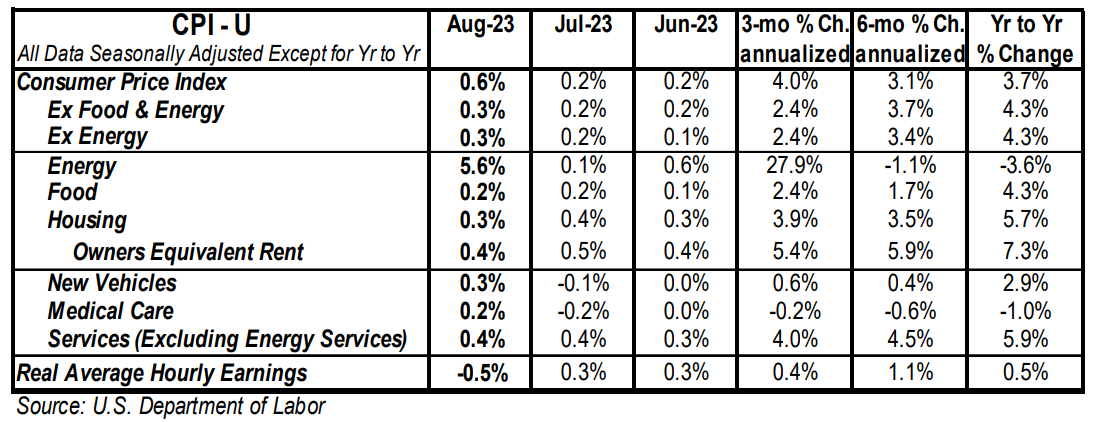- The Consumer Price Index (CPI) rose 0.6% in August, matching consensus expectations. The CPI is up 3.7% from a year ago.
- Energy prices rose 5.6% in August, while food prices increased 0.2%. The “core” CPI, which excludes food and energy, rose 0.3% in August, above the consensus expected +0.2%. Core prices are up 4.3% versus a year ago.
- Real average hourly earnings – the cash earnings of all workers, adjusted for inflation – dropped 0.5% in August, but are up 0.5% in the past year. Real average weekly earnings are up 0.3% in the past year.
Implications:
The Federal Reserve may have gained some traction against inflation, but the inflation problem is far from finished. As expected, inflation came in hot in August with consumer prices up 0.6% for the month, largely driven by a 5.6% surge in energy prices. In turn, this pushed the twelve-month change for the headline index up to 3.7% versus 3.2% in July. While this is a huge improvement versus the 8.3% of August 2022, it is still nowhere close to the Fed’s official inflation target of 2.0%. The Fed’s battle against inflation is not over, and a deeper dive under the inflation hood confirms this. “Core” prices – which exclude the effects of the typically volatile food and energy sectors – remain elevated, rising 0.3% for the month (above the consensus expected +0.2%) and up 4.3% in the last twelve-months. Rental inflation – both for actual tenants and the imputed rental value of owner-occupied homes – continues to run hot, up 0.4% for the month and running above a 5% annualized rate over three-, six-, and twelve-month timeframes. Meanwhile, a subset category of inflation that the Fed is watching closely – known as the “Super Core” – which excludes food, energy, other goods, and housing rents, rose 0.4% in August and is up 4.0% in last twelve months. No matter which way you cut it, inflation remains nowhere close to where the Fed wants it to be. Couple that with a resilient US labor market, Powell and Co. still have plenty of reason to keep monetary policy tight in the months to come. The worst part of today’s report was that real average hourly earnings declined 0.5% in August, taking a large bite out of consumer spending power. We continue to believe a recession is on the way. Equity investors should remain vigilant as we navigate these unprecedented times.





